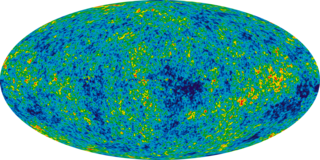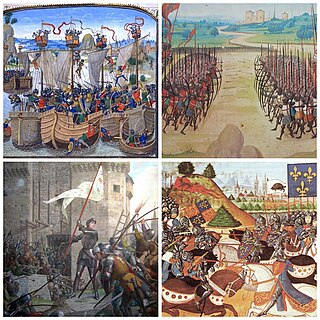| |||||
| Decades: | |||||
|---|---|---|---|---|---|
| See also: | Other events of 1956 Years in Iran | ||||
Events from the year 1956 in Iran.
| |||||
| Decades: | |||||
|---|---|---|---|---|---|
| See also: | Other events of 1956 Years in Iran | ||||
Events from the year 1956 in Iran.

The terms anno Domini (AD) and before Christ (BC) are used when designating years in the Gregorian and Julian calendars. The term anno Domini is Medieval Latin and means "in the year of the Lord" but is often presented using "our Lord" instead of "the Lord", taken from the full original phrase "anno Domini nostri Jesu Christi", which translates to "in the year of our Lord Jesus Christ". The form "BC" is specific to English, and equivalent abbreviations are used in other languages: the Latin form, rarely used in English, is ante Christum natum (ACN) or ante Christum (AC).

The French Republican calendar, also commonly called the French Revolutionary calendar, was a calendar created and implemented during the French Revolution, and used by the French government for about 12 years from late 1793 to 1805, and for 18 days by the Paris Commune in 1871, and meant to replace the Gregorian calendar.

India is the most populous country in the world with one-sixth of the world's population. According to estimates from the United Nations (UN), India has overtaken China as the country with the largest population in the world, with a population of 1,425,775,850 at the end of April 2023.

The Thirty Years' War, from 1618 to 1648, was one of the most destructive conflicts in European history. Fought primarily in Central Europe, an estimated 4.5 to 8 million soldiers and civilians died from the effects of battle, famine, or disease, while parts of Germany reported population declines of over 50%. Related conflicts include the Eighty Years' War, the War of the Mantuan Succession, the Franco-Spanish War, the Torstenson War, the Dutch-Portuguese War, and the Portuguese Restoration War.

A year is the time taken for astronomical objects to complete one orbit. For example, a year on Earth is the time taken for Earth to revolve around the Sun. Generally, a year is taken to mean a calendar year, but the word is also used for periods loosely associated with the calendar or astronomical year, such as the seasonal year, the fiscal year, the academic year, etc. The term can also be used in reference to any long period or cycle, such as the Great Year.

A Bachelor of Arts is a bachelor's degree awarded for an undergraduate program in the liberal arts, or, in some cases, other disciplines. A Bachelor of Arts degree course is generally completed in three or four years, depending on the country and institution.
Kali Yuga, in Hinduism, is the fourth, shortest and worst of the four yugas in a Yuga Cycle, preceded by Dvapara Yuga and followed by the next cycle's Krita (Satya) Yuga. It is believed to be the present age, which is full of conflict and sin.
A bachelor's degree or baccalaureate is an undergraduate degree awarded by colleges and universities upon completion of a course of study lasting three to six years. The two most common bachelor's degrees are the Bachelor of Arts (BA) and the Bachelor of Science. In some institutions and educational systems, certain bachelor's degrees can only be taken as graduate or postgraduate educations after a first degree has been completed, although more commonly the successful completion of a bachelor's degree is a prerequisite for further courses such as a master's or a doctorate.

The Human Development Index (HDI) is a statistical composite index of life expectancy, education, and per capita income indicators, which is used to rank countries into four tiers of human development. A country scores a higher level of HDI when the lifespan is higher, the education level is higher, and the gross national income GNI (PPP) per capita is higher. It was developed by Pakistani economist Mahbub ul-Haq and was further used to measure a country's development by the United Nations Development Programme (UNDP)'s Human Development Report Office.

A secondary school or high school is an institution that provides secondary education. Some secondary schools provide both lower secondary education and upper secondary education, i.e., both levels 2 and 3 of the ISCED scale, but these can also be provided in separate schools. There may be other variations in the provision: for example, children in Australia, Hong Kong, and Spain change from the primary to secondary systems a year later at the age of 12, with the ISCED's first year of lower secondary being the last year of primary provision.

A wedding anniversary is the anniversary of the date that a wedding took place. Couples often mark the occasion by celebrating their relationship, either privately or with a larger party. Special celebrations and gifts are often given for particular anniversary milestones. In some cultures, traditional names exist for milestone anniversaries; for instance, fifty years of marriage may be known variously as a "golden wedding anniversary", "golden anniversary" or "golden wedding".
The Ethiopian calendar, or Ge'ez calendar is the official state civil calendar of Ethiopia and serves as an unofficial customary cultural calendar in Eritrea, and among Ethiopians and Eritreans in the diaspora. It is also an ecclesiastical calendar for Ethiopian Christians and Eritrean Christians belonging to the Orthodox Tewahedo Churches, Eastern Catholic Churches, and Eastern Protestant Christian P'ent'ay Churches. The Ethiopian calendar is a solar calendar that has much in common with the Coptic calendar of the Coptic Orthodox Church of Alexandria and Coptic Catholic Church, but like the Julian calendar, it adds a leap day every four years without exception, and begins the year on 11 or 12th of September in the Gregorian calendar. A gap of seven to eight years between the Ethiopian and Gregorian calendars results from an alternative calculation in determining the date of the Annunciation.

The majority of Egyptologists agree on the outline and many details of the chronology of Ancient Egypt. This scholarly consensus is known as the Conventional Egyptian chronology, which places the beginning of the Old Kingdom in the 27th century BC, the beginning of the Middle Kingdom in the 21st century BC and the beginning of the New Kingdom in the mid-16th century BC.

The expansion of the universe is the increase in distance between gravitationally unbound parts of the observable universe with time. It is an intrinsic expansion, so it does not mean that the universe expands "into" anything or that space exists "outside" it. To any observer in the universe, it appears that all but the nearest galaxies recede at speeds that are proportional to their distance from the observer, on average. While objects cannot move faster than light, this limitation applies only with respect to local reference frames and does not limit the recession rates of cosmologically distant objects.

The Hundred Years' War was a conflict between the kingdoms of England and France and a civil war in France during the Late Middle Ages. It emerged from feudal disputes over the Duchy of Aquitaine and was triggered by a claim to the French throne made by Edward III of England. The war grew into a broader military, economic, and political struggle involving factions from across Western Europe, fuelled by emerging nationalism on both sides. The periodisation of the war typically charts it as taking place over 116 years. However, it was an intermittent conflict which was frequently interrupted by external factors, such as the Black Death, and several years of truces.

The Seven Years' War (1756–1763) was a global conflict involving most of the European great powers, fought primarily in Europe and the Americas. One of the opposing alliances was led by Great Britain and Prussia. The other alliance was led by France, backed by Spain, Saxony, Sweden, and Russia. Related conflicts include the 1754 to 1763 French and Indian War, and 1762 to 1763 Anglo-Spanish War.

A Bachelor of Science is a bachelor's degree that is awarded for programs that generally last three to five years.
The Gregorian calendar is the calendar used in most parts of the world. It went into effect in October 1582 following the papal bull Inter gravissimas issued by Pope Gregory XIII, which introduced it as a modification of, and replacement for, the Julian calendar. The principal change was to space leap years differently so as to make the average calendar year 365.2425 days long, more closely approximating the 365.2422-day 'tropical' or 'solar' year that is determined by the Earth's revolution around the Sun.
In contemporary history, the third millennium is the current millennium in the Anno Domini or Common Era, under the Gregorian calendar. It began on 1 January 2001 (MMI) and will end on 31 December 3000 (MMM), spanning the 21st to 30th centuries.